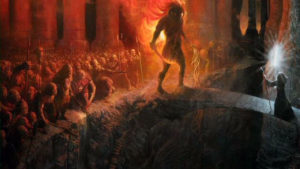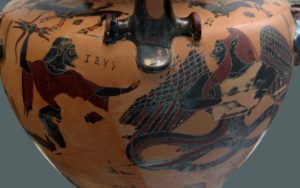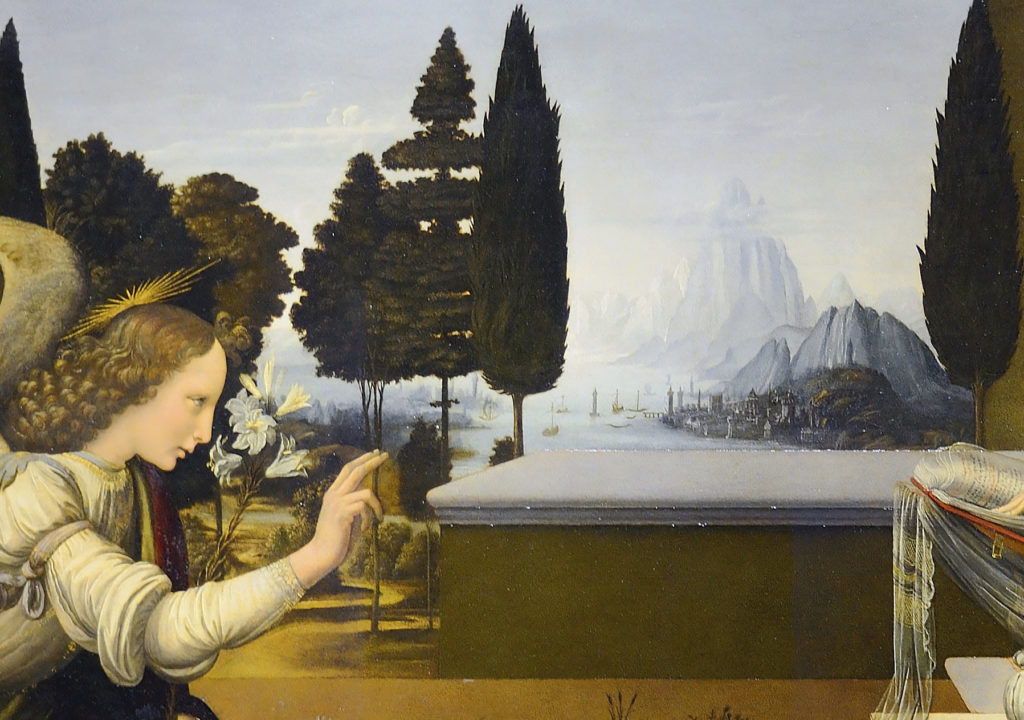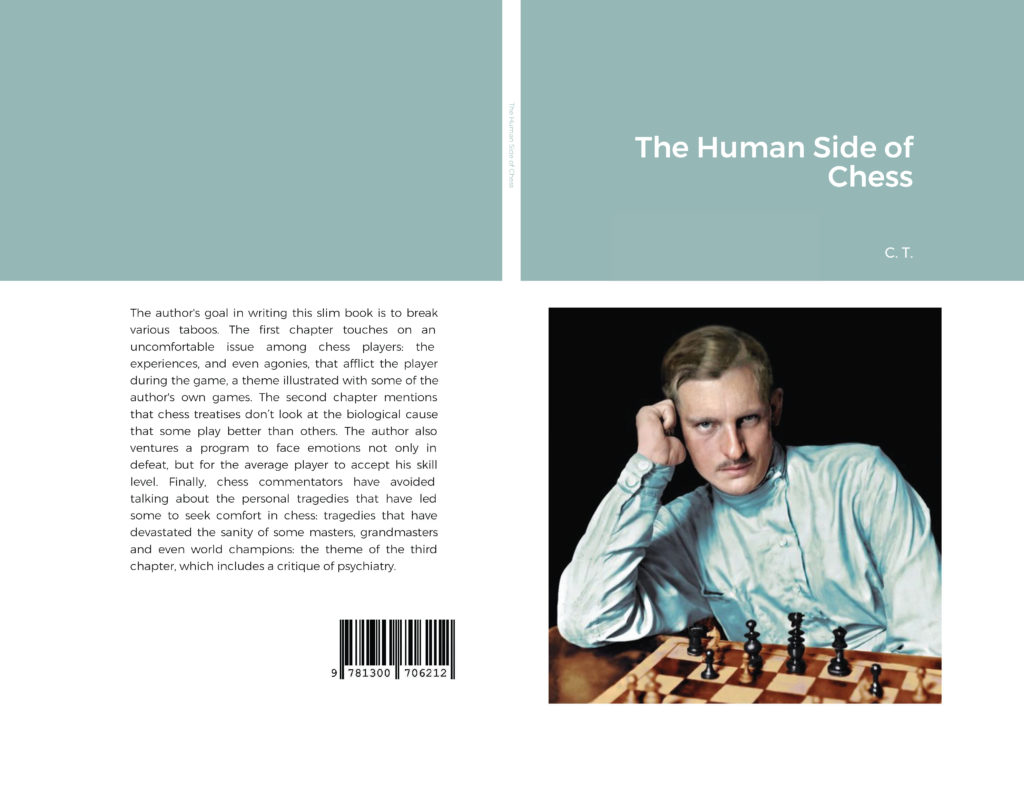
This will be the new featured post, where I will suggest how to cross the psychological Rubicon from Normieland to the lands of National Socialism. Needless to say, only normies with honour—that is, valour and honesty—will be able to cross it.
Politically, I was a normie until my forties. In 2010 I learned of a mass genocide perpetrated by the Allies in the immediate aftermath of the Second World War. Due to the Morgenthau Plan millions of Germans and collaborators perished in the years after the official end of the war. This real Holocaust is not made into films, documentaries, or taught in universities simply because the winners write History.
If you are a normie of noble sentiments, even if the System has hidden these facts from you to control your mind, you should dip your feet in the river water reading
Hellstorm, the Death of Nazi Germany: 1944-1947
which is available in printed form. It is not a matter of blindly believing what Tom Goodrich writes, but of researching; checking the sources he mentions, and realising that the Holocaust of millions of Germans was very real.
This is the first step to refute an astronomical lie: a lie so big about the Second World War that it could be measured from here to Pluto—the old trick of lying by omission!
Whoever has taken that first step into the river will be knee-deep in water, and ready to face another huge historical lie disseminated, too, to control and eventually madden the white man:
Christianity’s Criminal History Vol I
Christianity’s Criminal History Vol II
These two volumes, for the moment only available in PDFs, represent not two but a single step. A future publisher might even merge the contents into one cover showing both Constantine and Charlemagne. I separated them because the first volume ends with a veritable Holocaust of two Germanic peoples perpetrated by Justinian I, the Christian emperor of Constantinople. That Holocaust has been another of the astronomical lies—lying by omission, yet again! So much of this kind of genocide of pure whites orchestrated by mudbloods has been hidden from us that hardly anyone hates Imperial Christianity today. But in addition to Justinian’s Holocaust, Karlheinz Deschner’s books expose to the public eye a colossal number of crimes perpetrated by the Christian churches that hardly anyone has heard of (which is why the modern West, the spiritual heir of Christendom, is as mad as it is today).
He who controls the past controls the future said Orwell. These two historical lies about Christianity and World War II have kept the Aryan man virtually lobotomised so that today the poor fellow wanders like a zombie in cities full of non-whites. It will always be possible to research the author’s sources (Deschner’s original work, for example, was published in German in ten volumes, with thousands of bibliographical sources). If the noble-minded Aryan decides to investigate these two sidereal historical lies having taken the two steps above, now, with the water up to his waist, the traveller finds himself in a position to confront
Unlike the previous steps, the third step is no longer about historical facts, but rather about how to interpret them. I am talking about becoming aware of the Jewish Question; specifically, how the toxic message of the Jews who wrote the New Testament came to mutate into modern liberalism and, eventually, into Wokism whose god is a new Holy Trinity (equality of race, gender and sexual orientation). With very strong anti-Hitlerian overtones, this is the religion of the West today. Neo-Christianity abbreviates two books by two different authors—David Skrbina and Tom Holland—that explain the New Testament metamorphosis into the secular, ethno-suicidal ideology suffered by today’s white man.
Given that the water is now up to the migrant’s neck, this is a very difficult, if essential, step to continue crossing the psychological Rubicon—a step that, with rare exceptions, the racial right has been unwilling to take. But if the noble-spirited adventurer has already taken these three firm steps, he will be in a position to take the fourth, reaching the middle of the river in areas where he already has to swim:
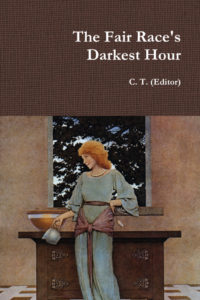 This anthology of fifteen authors is the most voluminous of the list: a sort of textbook for understanding this site, The West’s Darkest Hour. The historical essays by the American William Pierce and the Spaniard Eduardo Velasco that we read in The Fair Race are basic for the story that the Aryan should begin to tell about himself. Few texts have had such a powerful influence on my worldview as this anthology. Velasco’s long essay on the underlying struggle between Judea and Rome, a psycho-historical notion stemming from Nietzsche, further expands on David Skrbina’s exposition in the previous step.
This anthology of fifteen authors is the most voluminous of the list: a sort of textbook for understanding this site, The West’s Darkest Hour. The historical essays by the American William Pierce and the Spaniard Eduardo Velasco that we read in The Fair Race are basic for the story that the Aryan should begin to tell about himself. Few texts have had such a powerful influence on my worldview as this anthology. Velasco’s long essay on the underlying struggle between Judea and Rome, a psycho-historical notion stemming from Nietzsche, further expands on David Skrbina’s exposition in the previous step.
Memoirs and Reflections of an Aryan Woman
If the traveller has swum into these waters he will find a river nymph who will help him… dive. The Swiss Carl Jung was right to speak of the male animus and the female anima in the sense that they are complementary in reaching the Self (which Jung realised was identical to the God archetype). We refer to the nuclear power of the psyche to galvanise the collective unconscious of the Aryan.
Since, except Memoirs, the above books appeal to the intellect—they were written by men—the next journey for the male passenger is to make contact with the feminine part of his psyche, beneath the surface. It has taken a woman’s intuition to grasp the grandeur of what Adolf Hitler intended. Only by introducing numinous rituals invoking His memory would it be possible to reach the core of the Aryan Self to produce the new Zeitgeist that will eventually lead to a Fourth Reich. Here we can no longer speak of a fifth step, but of reaching the bottom of the turbulent waters without drowning thanks to the magic of the river nymph.
To exemplify this I would like to say that I recently heard William Pierce’s thesis on a religion he wanted to found, which he called Cosmotheism. Pierce failed because a new religion cannot arise from mere male animus, the scholar’s desk, even if Pierce had the best mind that America has ever produced. It requires religious ritual, like what the Germans did already in the Third Reich by touching the new flags with the flag of the failed putsch, or the ceremonies of an enchanted night that enraptured the Hitler Youth… Without collective numinosity a new religion cannot arise. And without honouring the holocausted Germans—Pierce’s mistake though not Commander Rockwell’s—no new movement can emerge that galvanises the Aryan to the extent of engendering an improved National Socialism. Immersing oneself in the philosophy of Savitri Devi to contact our deepest Self, in a daring journey into inner space, is fundamental to crossing the rest of the river.
If you have reached this point, you are practically a priest of the sacred words. However, given that the priestess Savitri invokes Kalki at the end of her book, which implies a sacrifice of billions of wingless bipeds swarming the Earth, to understand this apocalyptic archetype the pilgrim could apostille the reading of Savitri’s book with a sixth step in that, although the water is back to his neck, his feet are already touching the floor of the river.
Day of Wrath
On Exterminationism
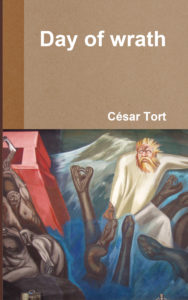 If the expeditionary continues to cross the Rubicon, and at last finds himself once again in a state of physical comfort, feeling land on the soles of his feet with the water up to his waist, and eventually to his knees, he would do well to think about a subject that, with a few exceptions, today’s racialists are also reluctant to address. I am referring to feminism, which has been used as a weapon of mass destruction against whites. (After all, throughout history women like Savitri are, perhaps, counted on the fingers of one hand.)
If the expeditionary continues to cross the Rubicon, and at last finds himself once again in a state of physical comfort, feeling land on the soles of his feet with the water up to his waist, and eventually to his knees, he would do well to think about a subject that, with a few exceptions, today’s racialists are also reluctant to address. I am referring to feminism, which has been used as a weapon of mass destruction against whites. (After all, throughout history women like Savitri are, perhaps, counted on the fingers of one hand.)
This is the migrant’s seventh and final step. He has finished crossing the river and is finally on dry land, albeit with his feet still wet in the damp, dark sand of the beach, even if he has a few more steps to go before he touches dry, clear land (see also ‘Oldtown’).
Incidentally, if the normie doesn’t even want to take the first step—Goodrich’s book—I suggest he at least read this review. It is also dark, wet sand on the beach of Normieland; on the other side of our shore. But if he has good will he will enter the river.
Hellstorm is an essential step and white nationalists omit it. While I recognise that the two steps they have taken are oriented in the right direction of the Rubicon—the race realism of those who visit American Renaissance and the JQ of those who visit The Occidental Observer—by not giving due weight to the Hellstorm Holocaust they are trapped in the river, unable to complete the crossing.
